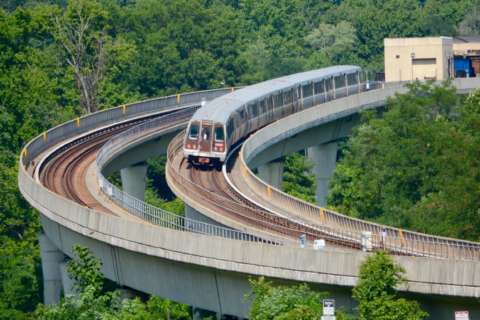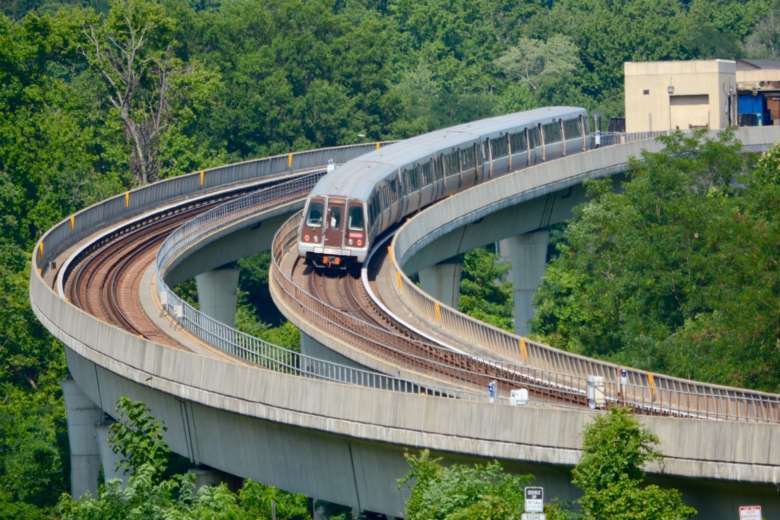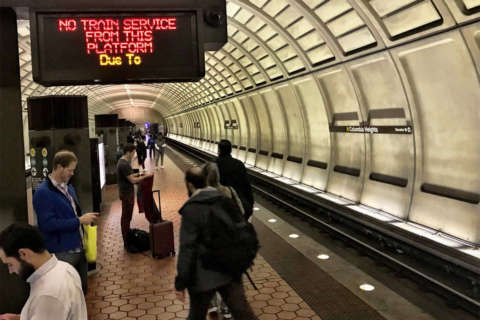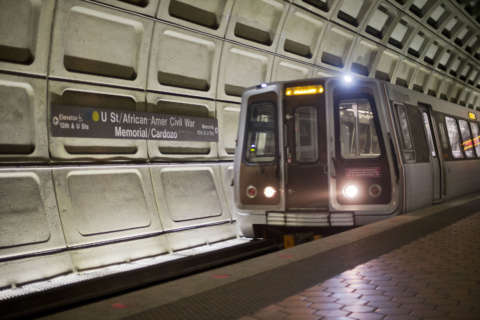
WASHINGTON — Metro is set for yet another one-year extension of a regional funding agreement this week, as the agency waits on potential dedicated funding and sizes up Silver Line service due to extend to Dulles Airport and into Loudoun County by 2020.
The Metro Board is scheduled Thursday to approve a $1.837 billion operating budget with no new fare hikes or significant service cuts, and a six-year capital construction plan for the rail, bus and paratransit system. In the first year, Metro plans $1.28 billion in capital construction, repairs and purchases.
To advance that capital plan, the board is set to approve a third consecutive one-year extension of the capital funding agreement among local governments. The current deal began in 2010, just as Metro started to increase some weekend track work but before it began to address more major repair needs.
Extending the deal one year could allow a future long-term agreement to factor in bonds funded by any dedicated funding provided by the District, Maryland and Virginia, provide for Loudoun County to be at the table for a six-year deal that factors in costs when Silver Line service begins, and allow the region to respond to any federal funding changes. A 10-year special $150 million annual federal capital funding provision is set to expire after fiscal year 2020, unless Congress acts to extend it.
Metro funding breakdown
Under the capital financial plan for the budget year starting July 1, the District would be responsible for $276.4 million; Maryland would be responsible for $269.3 million; Fairfax County would be responsible for $97.8 million; Arlington would be responsible for $58.5 million; Alexandria would be responsible for $30.4 million; the cities of Fairfax and Falls Church would be responsible for $1.8 million each, and Virginia’s state government would contribute $51 million. Federal grants or other funding would provide $459 million, and the Metropolitan Washington Airports Authority would provide $27 million as part of Silver Line preparation costs.
Metro hopes to do $8.5 billion in total capital work over the next six years to improve or maintain service, some of which will require track work disruptions.
For the operating budget, including outstanding debt service, the District would pay $393 million; Maryland’s share for Montgomery and Prince George’s counties would be $404 million; Fairfax County would pay $145 million; Arlington County would pay $72 million; Alexandria would pay $44 million; Falls Church would pay $3 million, and the City of Fairfax would pay $2 million. (Numbers are rounded to the nearest million).
D.C. audit
A D.C. Inspector General report issued last month suggested the District was essentially overcharged by $6.2 million, or 2.9 percent, for capital projects over a three-year period from mid-2013 to mid-2016, finding that those costs should have been paid by Maryland or Virginia jurisdictions. In the budget year that began July 1, 2013, the report found the operating subsidy was also miscalculated, leading to the District paying $1.9 million, or about 1 percent, more than it should have under existing formulas.
While the audit suggested incorrect 2010 census data, inaccurate calculations of paratransit costs, and the incorrect inclusion of a number of local bus routes and costs were key drivers of the subsidy discrepancy, Metro declined to respond to the findings on the miscalculations pending further review.
Metro’s response did argue that the District’s recalculation may be incorrect, since it was based on current formulas rather than the ones specifically developed in 2013. Metro did not have documentation to explain how the 2013 calculations were made.
Metro agreed to address other issues, and pointed out that it has made significant financial progress since 2016.
Overall, the report found Metro provided accurate information about capital spending, and that the money was spent in accordance with the existing regional agreement.









